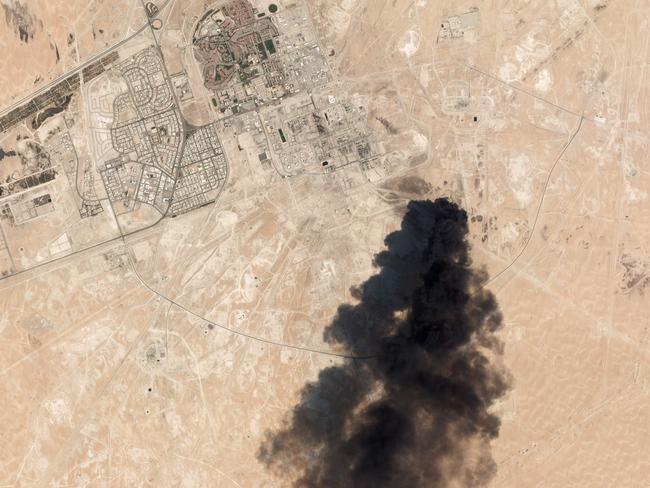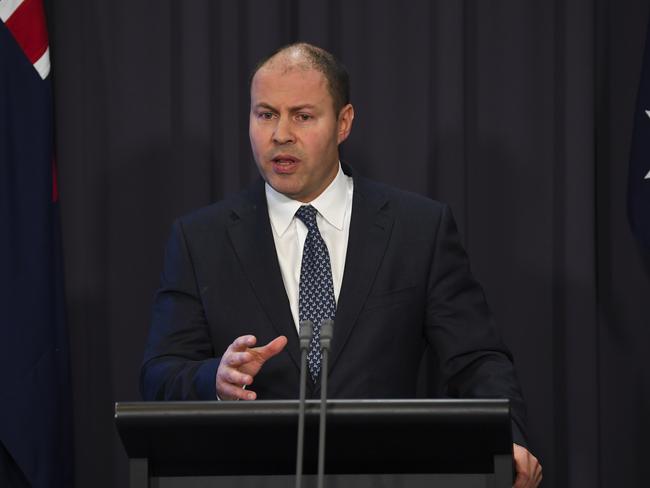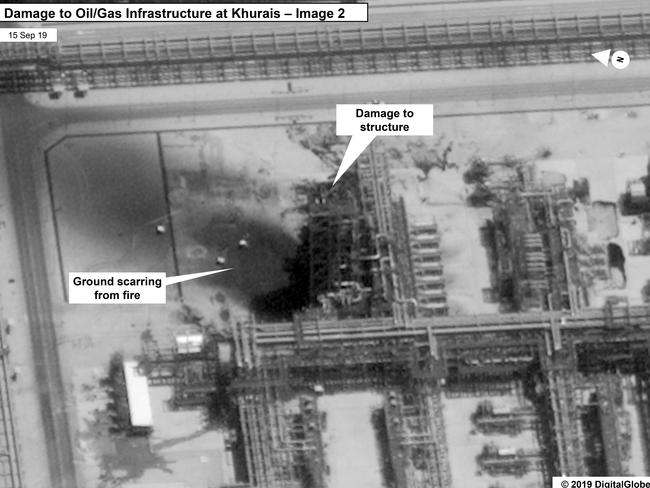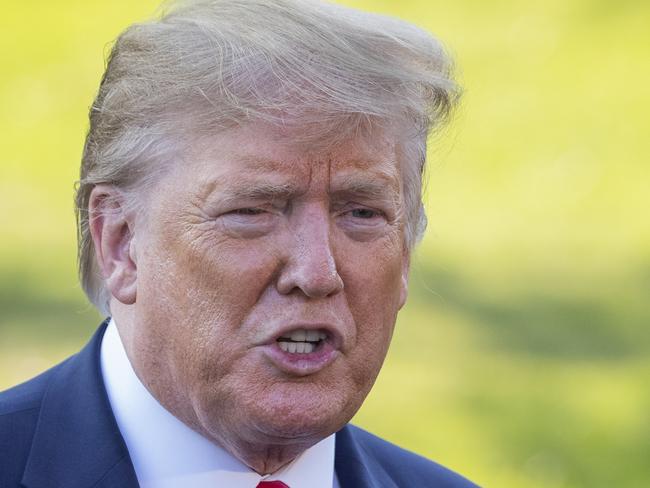Treasurer Josh Frydenberg urges calm over US-Iran conflict
Treasurer Josh Frydenberg is urging the business community not to panic after Donald Trump declared the US was “locked and loaded” to take on Iran over attacks on Saudi oilfields.

National
Don't miss out on the headlines from National. Followed categories will be added to My News.
Josh Frydenberg is urging the Australian business community not to overreact to fears of a full-blown military conflict between the US and Iran.
Donald Trump has declared the US is “locked and loaded” to take on Iran over its alleged role in the weekend bombings of Saudi oilfields.
The federal treasurer acknowledged this escalating rhetoric — along with Brexit and the ongoing US-China trade war — were weighing heavily on investors.
But in a speech to the Business Council of Australia, Mr Frydenberg will implore companies not to panic.
“Global trade tensions, Brexit and the recent targeting of oilfields in the Middle East give investors reason to pause,” he will say in Canberra tonight.
“Now in times of global economic and political uncertainty, it is more critical than ever to provide stability and certainty in our economic settings and not get drawn into overreacting.”
MORE: World’s oil supply at risk after attacks

Devastating floods, fire and drought are also hurting communities and detracting from the economy, the treasurer will tell business leaders.
“But the government’s strong fiscal management and the ongoing resilience of the Australian economy should provide business with the confidence to invest, to grow, to innovate and to employ,” he will say.
“It is in their long term interest and that of the economy.
“We are as a nation as well placed as any for the challenging economic times we face.”
Deputy Opposition Leader Richard Marles signalled the rapidly escalating tension between the United States and Iran is stirring anxiety.
“You can’t be anything other than anxious when you hear that kind of language,” Mr Marles told ABC Radio today.

MORE NEWS:
Iran admits to jailing Aussie academic
Boos force Boris out of Brexit appearance
Aussie couples splurge on Bachelor-style dates
Power WAGs: AFL’s influential wives and girlfriends
ATO warns of tax switch deadline
Jimmy Barnes faces biggest fear
The weekend strikes on Abqaiq — the world’s largest oil processing facility — and the Khurais oilfield in eastern Saudi Arabia sent oil prices spiking yesterday.
Global energy prices spiked by 15 per cent — an increase on par with the 1991 Gulf War.
Analysts said heightened tensions in the Middle East could keep prices elevated for the foreseeable future.
The wider economic fallout will depend on just how long the Saudi supply disruption lasts.
Iran has denied responsibility, with Iranian President Hassan Rouhani saying the strike was carried out by “Yemeni people” retaliating against attacks by the Saudi-led coalition in Yemen’s four-year-old war.
Yemen’s Iran-aligned Huthi rebels claimed responsibility for the operation but the Riyadh-led coalition said the weapons used were Iranian made.
“All indications are that weapons used in both attacks came from Iran,” rather than Yemen, coalition spokesman Turki al-Maliki told reporters in Riyadh, adding that an investigation was underway.
Washington has squarely blamed Iran, with President Donald Trump saying the US was preparing a response.
He added that, while the US could help, he had not promised protection to Riyadh.

“With all that being said, we’d certainly like to avoid it,” Trump said about a war with Iran, adding that he has not yet concluded that diplomacy has run its course.
“I don’t want war with anybody,” he says.
Trump downplayed the impact of a spike in oil prices following the attacks, saying prices had not risen much and the US and other countries could offset the increase by releasing more supply.
“They haven’t risen very much and we have the strategic oil reserves, which are massive, and we can release a little bit of that, and other countries … can be a little bit more generous with the oil, and you’d bring it right down,” Trump told reporters at the White House yesterday as he met with Bahrain Crown Prince Salman bin Hamad al-Khalifa.
“That’s not a problem,” he said.
